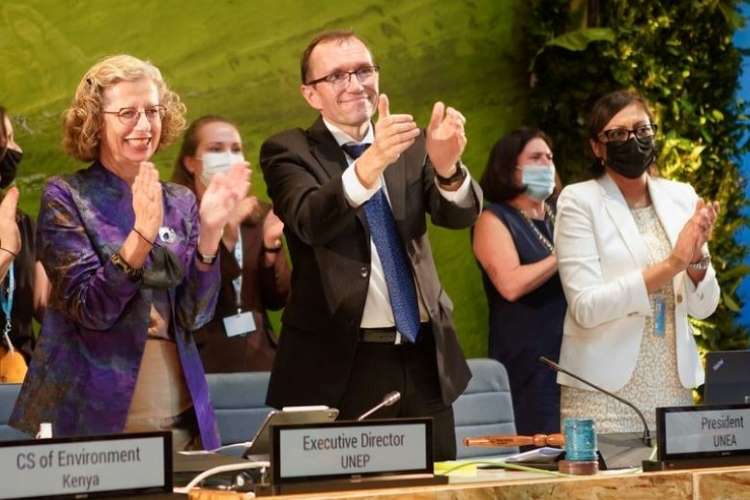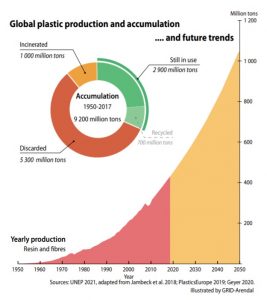
In what is hailed as the most important climate treaty after the Paris Agreement in 2015, the leaders of 175 countries agreed on a global pact to end plastic pollution. The United Nations Environment Assembly (UNEA) on Wednesday agreed to bring in a binding global treaty by the end of 2024. Representatives of around 200 countries concluded the UNEA meeting in Nairobi, Kenya on a positive note. The UNEA resolution addresses the entire lifecycle of plastic from production to disposal.
The UNEA said the success of the treaty would depend on the final terms of the agreement, which could see the intent diluted to accommodate the interests of member nations. The meeting adopted a resolution entitled, ‘End Plastic Pollution: Towards an internationally legally binding instrument’. The agreement proposes a road map for negotiations that will kick off in May.
READ I Russian invasion of Ukraine highlights need for UN reforms
Concern over plastic pollution
There is a mounting concern over plastic pollution. Global plastic production is more than 300 million tonnes per year. It is estimated that around 8 million tonnes of plastic waste enter the oceans every year, comprising 85% of marine litter. The United Nations Environment Programme projects pollution to double by 2025. Plastics bottles, food packages and bags are the biggest contributors to the menace of plastic pollution. A study conducted last year found that 20 large companies contributed more than half of the single-use plastic items that litter the world.

At least 40% of the global plastics output is used in packaging and just 9% of it is recycled. This means both production and waste are rising. Global production of plastics may touch one billion tonnes by the mid-century.
READ I Climate change: IPCC report warns of closing window of opportunity
Various studies have shown that greenhouse gas emissions from plastic production, use and disposal will account for 15% of the permitted emissions under the Paris Agreement by 2050 needed to stop the impact of climate change. So, cutting the use of plastics is key to achieving the goal of limiting global warming to 1.5 degrees Celsius above pre-industrial levels.
The treaty will require signatories to commit to cleaning plastic waste. The two-year timeframe for reaching the agreement is unusually fast for the UN system. The efforts towards the pact were initiated in 2017, but the Trump administration’s opposition derailed the initiative. The US reversed its stance in November 2021 and announced its support for a binding treaty. This prompted the UN agency to hasten efforts for the agreement. As the negotiators arrived in the Kenyan capital in February, more than 140 world nations, 100 multinational companies, and 300 scientists had already announced their support to the cause.
